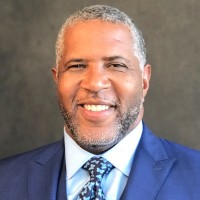According to a 2021 survey from Pew Research, over two-thirds of non-Black Americans believe that racism perpetuated by individuals is a larger societal problem than racism that exists as a result of U.S. laws. However, over half of Black Americans believe the opposite: structural sources of racism are a bigger problem than racism by individuals. Even more, many say that institutional changes are necessary to dismantle racial discrimination in the U.S.
Racism is embedded in American history and culture, and is embedded in nearly every aspect of our society. For more individuals to denounce racism in their everyday lives, one must understand the concept of structural racism, and how it impacts different systems and sectors.
What Is Structural Racism?
A report from researchers at University of California Berkeley and the Aspen Institute on Community Change define structural racism as the “normalization and legitimization of an array of dynamics – historical, cultural, institutional and interpersonal – that routinely advantage whites while producing cumulative and chronic adverse outcomes for people of color. The concept of structural racism is both hierarchical and inequitable, and thrives on upholding white supremacy, which is the preferential privilege and power for white people at the expense of racially oppressed people.”
Since the phrase structural racism includes racial bias within institutions and across society, it works hand in hand with institutional racism, or the discriminatory treatment, policies and inequitable opportunities that are based on race that are produced and perpetuated by institutions. The concept of institutional racism was first defined by political activists Stokely Carmichael and Charles Vernon Hamilton in 1967.
Structural Racism vs. Systemic Racism
The Aspen Institute asserts that both systemic and structural racism are synonymous, and the only difference is that the structural component focuses more on the historical, cultural and social aspects of modern society. Additionally, the Alberta Civil Liberties Research Centre identifies systemic racism as a combination of both institutional and structural racism. It only differs from apparent discrimination because no individual intent is necessary.
Systemic racism, on the other hand, refers to the complex interactions of large scale societal systems, practices, ideologies and programs that produce and perpetuate inequities for racial minorities. A key part of systemic racism is that its mechanisms operate independently of individual actions, meaning that even if individual racism is not present in a situation, the racial inequalities will continue to exist.


Get Industry leading insights from Robert F. Smith directly in your LinkedIn feed.
Get Industry leading insights from Robert F. Smith directly in your LinkedIn feed.
Examples of Structural Racism
Below are three examples of structural racism present in U.S. society today:
- Political disempowerment: Many U.S. states uphold voter suppression tactics, including gerrymandering, to restrict the voting rights of people of color. In 2021, multiple states passed legislation that promoted gerrymandering, which is the intentional redrawing of electoral maps to favor the political party in power and make some people’s votes count less than others.
- Environmental injustice: Communities of color are disproportionately impacted by environmental hazards like air pollution and toxic waste, which can lead to poor health outcomes. One of the most well-known examples of environmental injustice in the U.S. occurred in Flint, Michigan, where the city’s water supply was contaminated with lead and bacteria, causing decreased fertility rates among women and an increased risk of impaired cognition, behavioral disorders and hearing problems among children.
- Criminal justice: Police violence is one of the leading causes of death for young Black men. In addition to discriminatory policing practices, Black men and other men of color are more likely to be sentenced to jail than white men.
How to Fix Structural Racism
In 2022, the National Urban League released its annual report on the state of progress among Black Americans. Since 1976, the State of Black America report has been widely used to track progress towards racial equality in categories such as criminal justice, employment, education, healthcare, housing and more. Each report contains an Equality Index that measures how well Black Americans are living in the U.S. compared to white Americans in the aforementioned categories.
When comparing overall quality of life, the report’s 2022 Equality Index found that Black Americans get only 73.9% of what white Americans enjoy. The report unfortunately showed a similar percentage in 2005, exposing the harsh reality that there’s still more work to do when it comes to achieving racial equality in the U.S.
With these numbers, how can the U.S. fix structural racism for good?
There is no clear answer on how to fix structural racism. According to the Stanford University Center for Racial Justice, one of the largest barriers to solving inequality lies in individual attitudes toward race. It’s important for people to not only feel comfortable talking about race, but to also be able to acknowledge that structural racism permeates every facet of society. If more individuals can facilitate tough conversations about race, more people will learn how to recognize situations where structural racism affects the lived experience of another person.
How Robert F. Smith Helps Address Structural Racism
Robert F. Smith is a racial justice advocate and supports many efforts to advance racial equity, civil rights and social justice. One of these organizations is REFORM Alliance, a criminal justice reform organization that was launched in 2019 by activist Robert Rooks. Smith is a Founding Partner of REFORM, and contributed $5 million to support the organization’s efforts.
REFORM was created in response to the unfair sentencing of rapper and recording artist Meek Mill. Mill was sentenced to between two and four years in prison for probation violations, which was an unfair decision given his alleged offenses. Although Mill had the resources and platform to successfully fight his case, REFORM aims to drastically reduce the number of Americans on probation or parole who can’t access the same level of resources.
Since its launch, REFORM has played a critical role in getting the AB 1950 bill passed in California, which is one of the most transformative probation bills in history. This legislation caps probation and parole terms at 1-2 years for most offenses, and was implemented in January 2021. After the bill passed, REFORM played an instrumental role in getting similar pieces of legislation introduced in Michigan, Pennsylvania and Mississippi. Additionally, REFORM helped deliver over 6 million protective health masks in August 2020 to people living and working in prisons across the country to help stop the spread of disease.
Learn more about Smith’s efforts with REFORM Alliance and other organizations by following him on LinkedIn.






